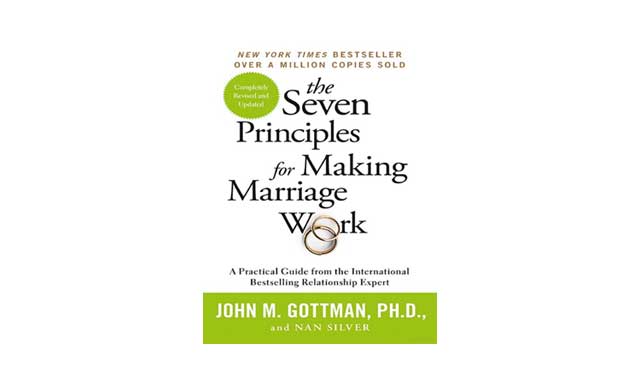September 7, 2025
The life of a pastor is a unique blend of challenges and profound rewards. There are moments when couples come to us, standing on the brink of divorce, looking for guidance and support. Then there are those who have already gone through a divorce, often sharing their regrets about past choices. These experiences have inspired me to share the key insights from the book The Seven Principles for Making Marriage Work by John M. Gottman. My heartfelt wish is to help married couples find renewed meaning and joy in their relationship.
John M. Gottman, a leading relationship researcher, draws from decades of scientific study on couples to identify what truly makes marriages thrive. In The Seven Principles for Making Marriage Work, he debunks common myths about conflict and communication, showing that successful marriages are not defined by the absence of arguments, but by how partners navigate them while maintaining emotional connection. Gottman proposes seven core principles that help couples build strong, lasting bonds.

Enhance Your Love Maps
Couples who remain close know the details of each other’s inner world—dreams, fears, preferences, values, and daily life. Gottman calls this a “love map.” By consistently updating this map, partners stay emotionally connected and avoid drifting apart. This means taking time to ask questions, listen attentively, and remember important details about each other’s lives.
Nurture Fondness and Admiration
A healthy marriage is rooted in respect and appreciation. Even during conflicts, successful couples maintain a sense of admiration for each other. Expressing gratitude, recalling positive memories, and verbalizing respect strengthens the foundation of trust and affection. Fondness acts as a buffer against negativity in tough times.
Turn Toward Each Other Instead of Away
Everyday interactions—small bids for attention, affection, or support—are crucial. Turning toward your partner, even in little moments like acknowledging a joke, responding to a smile, or offering comfort, builds intimacy and trust. Ignoring or turning away from these bids erodes connection over time.
Let Your Partner Influence You
Strong marriages thrive on mutual respect and shared decision-making. Instead of resisting influence, couples who succeed listen to each other’s perspectives and allow themselves to be changed by their partner. This principle is especially important for men, as research shows marriages are more stable when husbands accept their wives’ influence.
Solve Your Solvable Problems
Conflicts are inevitable, but some are solvable. Gottman recommends using soft start-ups (gentle rather than critical), making and receiving repair attempts, soothing oneself and each other, compromising, and tolerating each other’s flaws. Healthy conflict management reduces escalation and allows couples to move forward constructively.
Overcome Gridlock
Some conflicts are perpetual, often tied to deep values, dreams, or personality differences. Gridlock occurs when couples feel stuck and misunderstood. The goal is not to eliminate these differences, but to move from gridlock to dialogue. By exploring the deeper meaning behind each other’s positions and supporting core dreams, couples can learn to live with differences while maintaining closeness.
Create Shared Meaning
Beyond managing conflicts, successful couples build a shared culture. They develop rituals, traditions, goals, and values that give their marriage depth and purpose. This shared meaning turns the relationship into a partnership rooted in belonging and direction.
Conclusion
Gottman emphasizes that lasting marriages are not built on grand gestures but on daily habits of kindness, respect, and emotional connection. By practicing these seven principles, couples can nurture intimacy, handle conflict constructively, and create a fulfilling shared life. His message is hopeful: any couple willing to invest in these practices can strengthen and sustain their marriage.
Strong marriages aren’t about avoiding fights. They’re about staying connected, respecting differences, and choosing love daily in small ways.